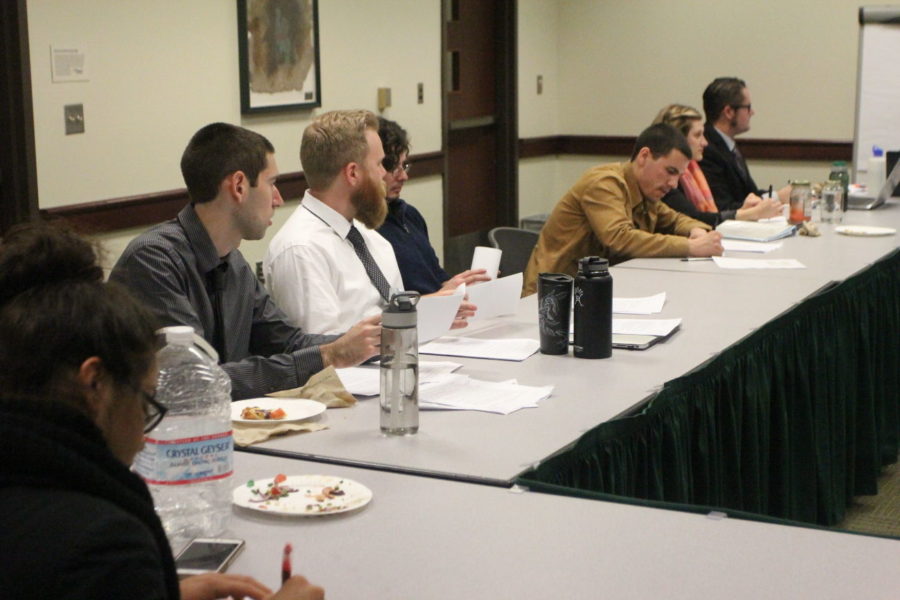Sac State looks forward to Water and Fire conference
Environmental studies and biological science majors practice for a climate change conference in the Forest Suite of the University Union, Wednesday, March 9.
March 10, 2016
Sacramento State environmental studies and biological science majors gathered on Wednesday to hold a mock conference in preparation for an April event titled “Water and Fire: Impacts of Climate Change.”
The students practiced and debated in the Forest Suite of the University Union for four hours.
Sac State environmental studies professor Michelle Stevens organized the mock conference with assistance from Sweta Chakraborty, executive director of the Institute on Science for Global Policy. Chakraborty and Stevens guided the students’ debate and prompted further discussion on key topics.
“What we want to see is you guys impress them as very knowledgeable young people who are going to be the future policymakers of this country,” Chakraborty said.
The ISGP previously held private debates for topics like food and disease, but decided to open up this climate change debate to the public because it is such a polarizing issue.
“We felt a moral obligation. There was interest to explore this topic, so we took it on,” Chakraborty said. “In order to take it on, we had to open it up to the public.”
The students separated into three groups to represent each of the three guest speakers for the April 10-11 conference: Jon Keeley, senior scientist at the U.S. Geological Survey; Roger Bales, director of the University of California Water Security and Sustainability Research Initiative; and Christina “Tina” Swanson, Natural Resources Defense Council Science Center director.
Keeley’s expertise at the conference will be wildfires, Bales’ will be water security, and Swanson’s will be water management for people and fish.
Lucas Sanchez, environmental studies senior, was on the team presenting Keeley’s research. His team debated possible tactics for researching and controlling wildfires.
“You know what you’re getting into when you buy a home in the middle of a bunch of field vegetation,” Sanchez said “Perhaps we can require those people to be responsible for maintaining the buffer between themselves and the fuel sources for these fires.”
Jason Roush, an environmental studies senior, responded to Sanchez’s suggestions on requiring California residents to maintain buffer zones by keeping brush around their houses trimmed.
“I think that, yes, you should extend your defensible spaces further. But remember that a spark can travel a mile and reignite,” Roush said. “How safe is safe. It’s reasonable to have as much defensible space as possible, but how much is enough.”
Sanchez advocated for more research of prescribed fires, or controlled burns, saying the only way to fully understand how to safely perform them is to try.
“That’s how science works,” Sanchez said.
The students also debated groundwater legislation and how to best defend dwindling fish populations.
Stevens said the conference was originally the dream of Frederika “Fraka” Harmsen, special assistant to the president on sustainability. Stevens also thanked Interim Provost Ming-Tung “Mike” Lee for his continuing support of the project.
The “Water and Fire: Impacts of Climate Change” conference will be on Sunday, April 10 and Monday, April 11. It is free and open to the public, but preregistration is required. Students can register here: http://scienceforglobalpolicy.org/conference/water-and-fire-impacts-of-climate-change/





























































































































